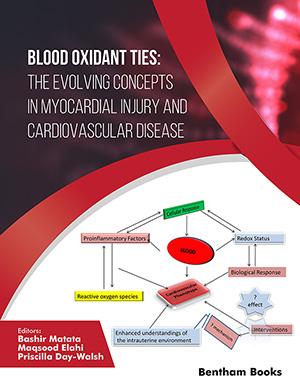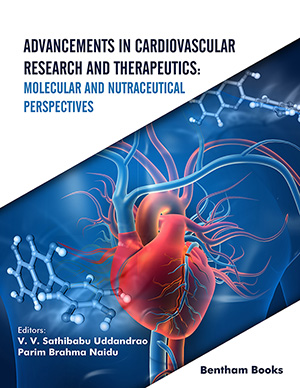
Abstract
Patients with symptomatic severe aortic stenosis (AS) benefit from aortic valve replacement surgery, but the management of patients with asymptomatic severe AS is more controversial. While cholesterol and angiotensin have been linked to AS progression, we should await the results of ongoing randomized trials before medical therapy to lower cholesterol or inhibit angiotensin can be recommended to limit disease progression. Clinical factors, echocardiographic parameters, valve morphology, exercise stress testing results, and cardiac biomarkers may be useful in identifying patients who will have early development of symptoms during follow-up and require closer monitoring. The risks associated with aortic valve replacement outweigh the benefits in the majority of patients with asymptomatic severe AS.
Keywords: Aortic valve stenosis, symptoms, management, surgery, exercise testing, brain natriuretic peptide
Current Cardiology Reviews
Title: Management of Asymptomatic Severe Aortic Stenosis
Volume: 5 Issue: 1
Author(s): Robert L. Stewart and Kwan L. Chan
Affiliation:
Keywords: Aortic valve stenosis, symptoms, management, surgery, exercise testing, brain natriuretic peptide
Abstract: Patients with symptomatic severe aortic stenosis (AS) benefit from aortic valve replacement surgery, but the management of patients with asymptomatic severe AS is more controversial. While cholesterol and angiotensin have been linked to AS progression, we should await the results of ongoing randomized trials before medical therapy to lower cholesterol or inhibit angiotensin can be recommended to limit disease progression. Clinical factors, echocardiographic parameters, valve morphology, exercise stress testing results, and cardiac biomarkers may be useful in identifying patients who will have early development of symptoms during follow-up and require closer monitoring. The risks associated with aortic valve replacement outweigh the benefits in the majority of patients with asymptomatic severe AS.
Export Options
About this article
Cite this article as:
Stewart L. Robert and Chan L. Kwan, Management of Asymptomatic Severe Aortic Stenosis, Current Cardiology Reviews 2009; 5 (1) . https://dx.doi.org/10.2174/157340309787048103
| DOI https://dx.doi.org/10.2174/157340309787048103 |
Print ISSN 1573-403X |
| Publisher Name Bentham Science Publisher |
Online ISSN 1875-6557 |
Call for Papers in Thematic Issues
Advances in Managing Cardiogenic Shock and the Value of Percutaneous Mechanical Circulatory Support.
Despite the advances in cardiology, the outcomes of patients with cardiogenic shock remain poor. There is an increasing interest and use of mechanical circulatory support for patients with cardiogenic shock. Additionally, the complexity of coronary interventions has increased during the last decade with the potential of treating more high-risk patients ...read more
Chronic Disease Self-Management for Heart Failure – A Mini review into Performance Gaps
Chronic disease self-management (CDSM)is a vital component of chronic disease management. There remain several important deficits in this concept. Its benefit are clear, many chronic diseases such as hypertension, diabetes, asthma, rheumatology syndromes have shown benefit in quality of life and quantitative measures of outcomes. Yet, in congestive heart failure ...read more
The era of cardiac medication and implantable devices therapy in heart failure treatment continues
The heart failure (HF) remains a serious public health problem and affects 64 million people worldwide. Although advances in medical therapy and device assistance have significantly improved HF outcomes, the implications of HF are still dramatic. In recent years, innovative developments have been made in HF treatment management, based on ...read more
Related Journals
 22
22
- Author Guidelines
- Graphical Abstracts
- Fabricating and Stating False Information
- Research Misconduct
- Post Publication Discussions and Corrections
- Publishing Ethics and Rectitude
- Increase Visibility of Your Article
- Archiving Policies
- Peer Review Workflow
- Order Your Article Before Print
- Promote Your Article
- Manuscript Transfer Facility
- Editorial Policies
- Allegations from Whistleblowers
- Announcements
Related Articles
-
Catastrophic Antiphospholipid Syndrome: Lessons from the “CAPS Registry”
Current Rheumatology Reviews Assay of Daptomycin Injection: Development and Validation of an Environment-friendly CZE Method
Current Pharmaceutical Analysis Neutrophil-Lymphocyte Ratio and Red Blood Cell Distribution Width in Patients with Atrial Fibrillation and Rheumatic Valve Disease
Current Vascular Pharmacology Current Status of Molecular Imaging in Infections
Current Pharmaceutical Design A Review of Macrolide Treatment of Atherosclerosis and Abdominal Aortic Aneurysms
Current Drug Targets - Infectious Disorders Antimicrobial Drug Interactions in the Critically Ill Patients
Current Clinical Pharmacology Selection Criteria for Probiotics and Potential of Cereal Based Food Products as Novel Probiotic-Carriers
Current Nutrition & Food Science Short Term Statin Treatment Improves Survival and Differentially Regulates Macrophage-Mediated Responses to Staphylococcus aureus
Current Pharmaceutical Biotechnology Drainage of Cerebral Abscesses Prior to Valve Replacement in Stable Patients with Acute Left-Sided Infective Endocarditis
CNS & Neurological Disorders - Drug Targets Prevention of Bacterial Endocarditis
Cardiovascular & Hematological Disorders-Drug Targets Therapeutic Modulation of Gut Microbiota: Current Clinical Applications and Future Perspectives
Current Drug Targets Rheumatoid Nodulosis in a Patient with Lupus Erythematosus: Case Report and Review
Current Rheumatology Reviews Rashes, Sniffles, and Stroke: A Role for Infection in Ischemic Stroke of Childhood
Infectious Disorders - Drug Targets Clinical Pharmacology and Lesion Penetrating Properties of Second- and Third-Line Antituberculous Agents Used in the Management of Multidrug-Resistant (MDR) and Extensively-Drug Resistant (XDR) Tuberculosis
Current Clinical Pharmacology Prosthetic Valve Endocarditis: Diagnostic Approach and Treatment Options
Cardiovascular & Hematological Disorders-Drug Targets Recent Developments in Antithrombotic Therapy: Will Sodium Warfarin Be a Drug of the Past?
Recent Patents on Cardiovascular Drug Discovery Antibacterial Combination of Oleoresin from Copaifera multijuga Hayne and Biogenic Silver Nanoparticles Towards Streptococcus agalactiae
Current Pharmaceutical Biotechnology Pneumococcal Infections at Hajj: Current Knowledge Gaps
Infectious Disorders - Drug Targets Elevated Urinary Tissue Inhibitor of Metalloproteinase-2 and Insulin-Like Growth Factor Binding Protein-7 Predict Drug-Induced Acute Kidney Injury
Current Drug Metabolism Pneumonia Due to Methicilin-Resistant Staphylococcus aureus (MRSA): A Review
Current Respiratory Medicine Reviews
















